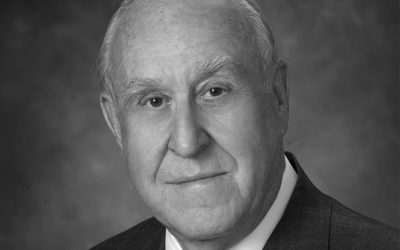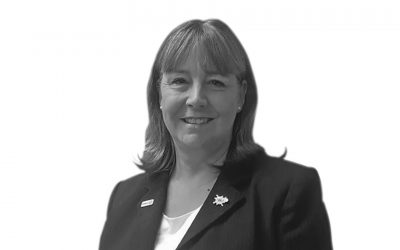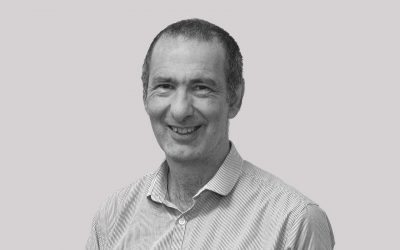The world is changing quickly as society faces a problem that could threaten life as we know it today. And Rotary Polio Ambassador, Ade Adepitan, has seen at first hand the impact of climate change on a global scale.
As the global climate crisis intensifies, the former Paralympian travelled the world for the BBC to unearth solutions to our environmental problems – whether natural or technological.
Listen to this article
The three-part series ‘Climate Change: Ade on the Frontline’ discovered how different places face different challenges; from erosion to wildlife loss, and unpredictable weather patterns.
One environmental disaster can create further issues elsewhere.
Ade began his travels in the Solomon Islands learning about an island in the Solomon Sea which was covered with forest 10 years ago but has now disappeared. Only a bough pokes above the waves.
He travelled along the east coast of Australia from the Great Barrier Reef to Tasmania, learning about the feminisation of green turtles. Green turtles may die out because the warmed-up sand means that only 1% of eggs that hatch are males.
The documentary maker also visited the Kingdom of Bhutan to discover how melting Himalayan glaciers affect the entire world.”
He also came face-to-face with the terror of a bushfire. Australia’s devastating drought had resulted in livestock starving and farmers taking their own lives, while carbon-absorbing kelp is dying out.
Ade’s travels took him to Bangladesh’s Ganges delta which is under threat from increasingly extreme weather. He joined a government effort to plant huge, new areas with mangroves to defend the low-lying country from tidal surges.
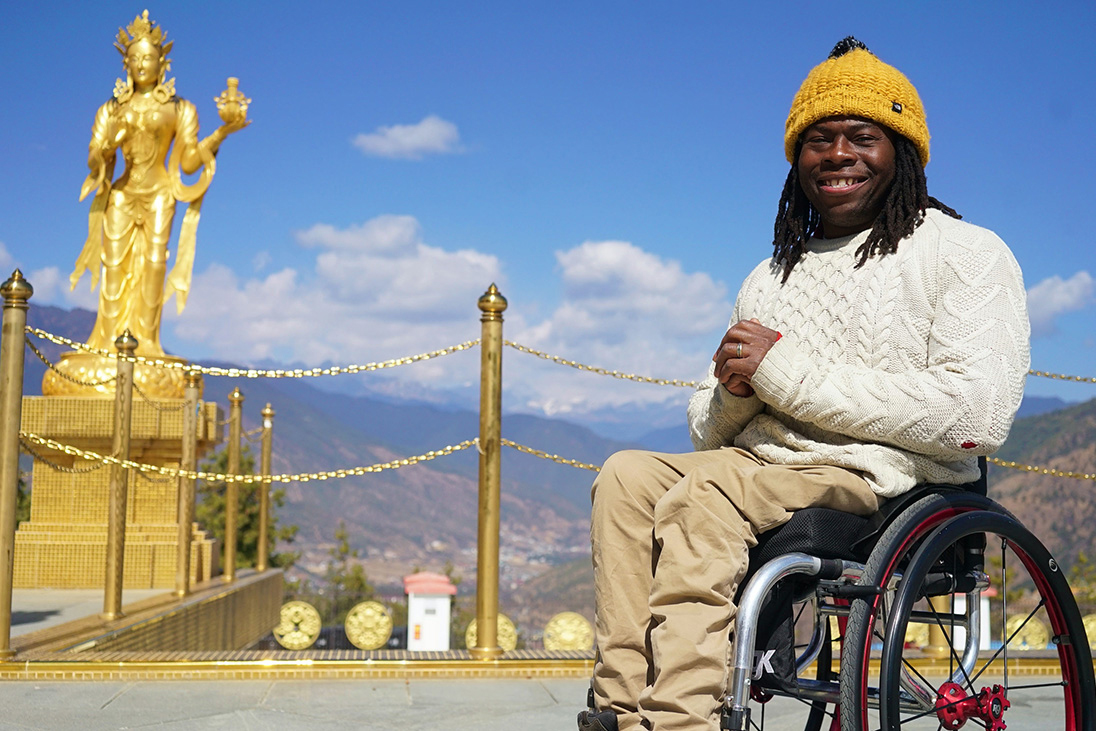

Ade in the kingdom of Bhutan
The documentary maker also visited the Kingdom of Bhutan to discover how melting Himalayan glaciers affect the entire world. He also heard from the Prime Minister how his country has become carbon neutral.
And in the final series, Ade met climate change activist Greta Thunberg in Stockholm to find how her generation is determined to turn things around. He toured a Gothenburg house installed with a hydrogen fuel system which could play a massive part in a carbon-free future.
He also learnt how the Danish capital, Copenhagen, has pledged to become carbon neutral by 2025.
But is there enough time to save the planet? Here, two years after filming, Ade reflects on the impact of the series:
Q | Tell me about the impact making “Climate Change: Ade on the Frontline” had on you?
It reinforced my commitment and made me understand the impact on actual people and their lives. Climate change can seem like quite an abstract thing until you see the impact on individuals.
Q | Why did you take on the project – and what did you expect?
It is the most important issue we are facing in the world. I use my profile to try to spread the word about it.
Q | How much did you know about climate change before filming?
Probably just a bit more than most people, but I am not an expert.
Q | You talk early on in the series about ‘the elephant in the room’ as far as climate change is concerned. Can you explain further?
People might criticise the flights in the film. Part of the problem, I tried to explain, is that this has been going on for decades, but we’ve not done much, so it’s become urgent. The only way to connect with the issue is to see real everyday people and their struggles, first-hand, and hear their stories.
Q | Can you pick out some of the most memorable/heart-breaking moments of the filming?
There were many. One of them was seeing the maps of Bangladesh and the sea level rise.
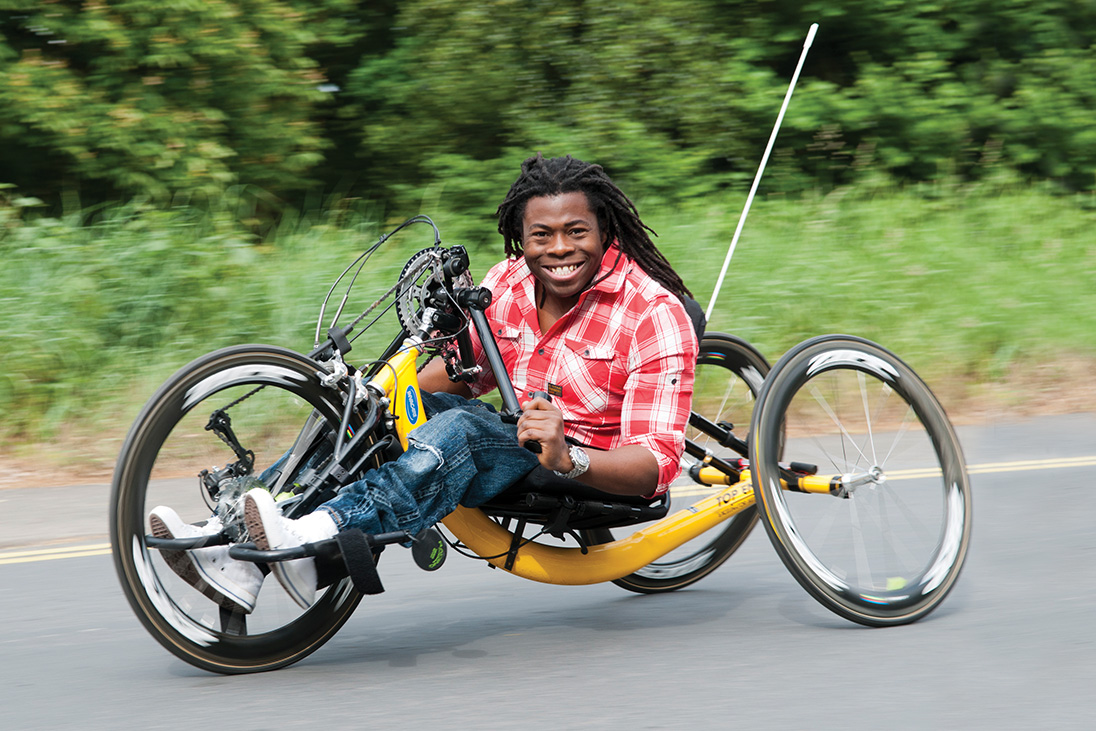

Ade on a trike handbike
Q | You made the point how those people who have been severely impacted by climate change, such as the family in the Solomon Islands, are rarely people who have contributed to the destructive march of climate change. Was that a surprise to you?
No, but it made me even more frustrated and committed.
Q | What about the carbon footprint in making the film by flying around the world?
As I mentioned earlier, it was important to show stories around the world first-hand.
Q | Did you find any hope, any solutions from the filming?
Yes, there are lots of solutions. In Tasmania they are re-planting the kelp forests, in Bhutan, they are living sustainably and sucking up more carbon than they emit. Across Scandinavia, there are lots of solutions. In Bangladesh the spirit of the people is incredible.
Q | A small change can go a long way – what can we collectively do?
Cut down on food waste. Food waste is one of the biggest emitters on the planet. Plan your food and shopping, and don’t throw things out needlessly. That will make a difference.
Q | How do you feel, as a relatively new father, about the future of the planet for your child?
Worried. I have a big frustration, lots of people know, but they don’t seem to care enough. That’s frustrating. I worry about what world my son will be left with.
Q | If you’d had a seat at the United Nations Climate Change Conference, what would you have said to world leaders?
Time is running out. Less talk, more action.
You can watch ‘Climate Change: Ade on the Frontline’ on BBC iPlayer.









